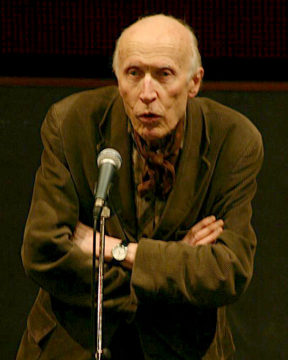David Hering at The Point:

Éric Rohmer wasn’t his real name. He was born Maurice Schérer, the name by which his mother knew him her whole life. As far as she was concerned, Maurice was a teacher in a lycée in Paris. She never knew of the existence of Éric Rohmer, nor that her son was an internationally lauded filmmaker and one-time editor-in-chief of Cahiers du Cinéma. His cinema, too, was self-denying. Rohmer idolized André Bazin, the influential French film theorist who argued that cinema was the “culmination in time of photographic objectivity”—that film should forgo the artifice of its creation and instead claim to be a snapshot of reality, a reflection of the world taking place in front of the camera. Ignore the origins of the image and its mediation, said Bazin; the world one chooses to depict is the world itself.
Many of Rohmer’s productions followed this model closely. The cast and crew, including Rohmer, would live in shared accommodation, often extremely frugal and without basic amenities, near the filming location, and where possible scenes would be shot in sequence.
more here.
